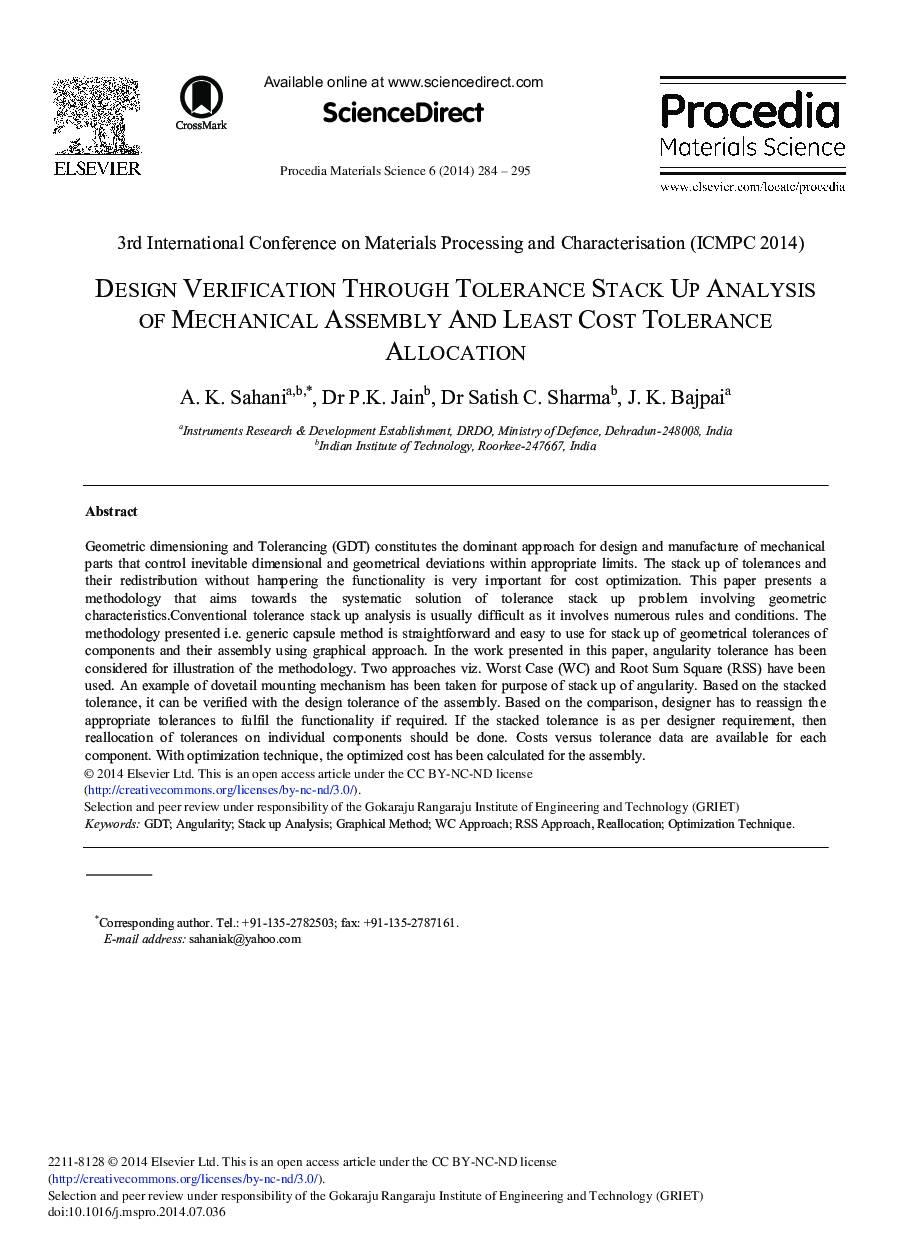| Article ID | Journal | Published Year | Pages | File Type |
|---|---|---|---|---|
| 1634422 | Procedia Materials Science | 2014 | 12 Pages |
Geometric dimensioning and Tolerancing (GDT) constitutes the dominant approach for design and manufacture of mechanical parts that control inevitable dimensional and geometrical deviations within appropriate limits. The stack up of tolerances and their redistribution without hampering the functionality is very important for cost optimization. This paper presents a methodology that aims towards the systematic solution of tolerance stack up problem involving geometric characteristics.Conventional tolerance stack up analysis is usually difficult as it involves numerous rules and conditions. The methodology presented i.e. generic capsule method is straightforward and easy to use for stack up of geometrical tolerances of components and their assembly using graphical approach. In the work presented in this paper, angularity tolerance has been considered for illustration of the methodology. Two approaches viz. Worst Case (WC) and Root Sum Square (RSS) have been used. An example of dovetail mounting mechanism has been taken for purpose of stack up of angularity. Based on the stacked tolerance, it can be verified with the design tolerance of the assembly. Based on the comparison, designer has to reassign the appropriate tolerances to fulfil the functionality if required. If the stacked tolerance is as per designer requirement, then reallocation of tolerances on individual components should be done. Costs versus tolerance data are available for each component. With optimization technique, the optimized cost has been calculated for the assembly.
